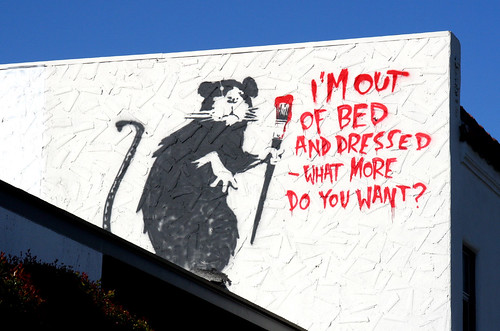Does creativity require freedom or constraints?
.
Bit of both:
This dissertation is about how constraint – restrictions to freedom that limit and direct search – influences creativity. Freedom is often associated with creativity, yet recent work in the decision making literature suggests that too much freedom can be paralyzing when it provides too many choices. This dissertation examines how the extent of constraint imposed on a task, when conceptualized as a continuum, affects creative processes and outcomes. It employs a multi-method, multi-level approach through three studies.
Study 1 was a controlled laboratory experiment centered around a written product design task where constraint was manipulated by varying task instructions. A curvilinear effect of constraint on creativity was identified such that a moderate degree of constraint was more conducive to creativity than either a high or a low degree. These effects were not explained by alternative explanations such as time allocation during the task, or decreased intrinsic motivation.
Studies 2 and 3 examined the role of constraint in 43 new product development teams. Through quantitative analysis, Study 2 found that the degree of constraint that new product development teams voluntarily imposed on their projects at the beginning of the semester predicted the creativity of their product proposals more than ten weeks later. The results held up even when controlling for task conflict.
Study 3 examined the same 43 teams through a series of three multi-method case studies. Grounded-theory analysis gave qualitative support to the theory proposed in Chapter 2 and revealed several emergent themes that were not anticipated, namely: assumption-constrained creativity, uncovering latent conflict, and confirmation-constrained creativity. The study resulted in new predictions about how constraint affects creative teams, and a novel framework for conceptualizing creativity as a hypothesis-testing activity.
These findings suggest that while some amount of choice is important for encouraging creativity, too much can be counterproductive, which runs counter to many popular theories of creativity. This dissertation should provide encouragement to organizations that are institutionally embedded, have scarce resources, or are otherwise restricted.
Source: “The Blank Page: Effects of Constraint on Creativity” by Caneel K. Joyce, London School of Economics
Join over 195,000 readers. Get a free weekly update via email here.
Related posts:
How To Stop Being Lazy And Get More Done – 5 Expert Tips
How To Get People To Like You: 7 Ways From An FBI Behavior Expert
New Harvard Research Reveals A Fun Way To Be More Successful




